“People are living longer than ever before, a phenomenon undoubtedly made necessary by the 30-year mortgage.”
—Doug Larson, columnist
If you’re shopping for a home, odds are you’re shopping for a mortgage as well. In the entire homebuying process, it’s perhaps the most intimidating step: convincing a bank to hand you hundreds of thousands of dollars. How do you pull it off? And what strings are attached? These days, finding a home loan is by no means a one-mortgage-fits-all model. Where you live, how long you plan to stay put, and other variables can make certain home loans better suited to your circumstances, and choosing wisely could save you a bundle on your down payment, fees, and interest.
To learn about all your options, check out these common types of home loans and whom they’re suited for, so you can make the right choice.

Fixed-rate loan
The most common type of loan, a fixed-rate loan, prescribes a single interest rate—and monthly payment—for the life of the loan, which is typically 15 or 30 years.
Right for: homeowners who crave predictability and aren’t going anywhere soon. You pay x amount for y years—and that’s the end of it. The rise and fall of interest rates won’t change the terms of your loan, so you’ll always know what to expect. That said, fixed-rate loans are best for people who plan to stay in their home for at least a good chunk of the life of their loan; if you think you’ll move fairly soon, you may want to consider the next option.
Adjustable-rate mortgage (ARM)
ARM loans offer interest rates typically lower than you’d get with a fixed-rate loan for a period of time—such as five or 10 years. But after that, your interest rates (and payments) will adjust, typically once a year, roughly corresponding to current interest rates. So if interest rates shoot up, so do your monthly payments; if they plummet, you’ll pay less.
Right for: homebuyers with lower credit scores. Since people with poor credit typically can’t get good rates on fixed-rate loans, an ARM can nudge those interest rates down enough to put homeownership within easier reach. These loans are also great for people who plan to move and sell their home before their fixed-rate period is up and their rates start fluctuating.
Federal Housing Administration (FHA) loan
While typical loans require a down payment of 20% of the purchase price of your home, with a Federal Housing Administration loan, you can put down as little as 3.5%.
Right for: homebuyers with meager savings for a down payment. These loans come with several caveats. First, most loans are limited to a certain maximum amount, and don’t provide much flexibility. Rates are typically fixed, with either 15- or 30-year terms. Buyers are also required to pay mortgage insurance—either upfront or over the life of the loan—which hovers at around 1% of the cost of your loan.
U.S. Department of Agriculture (USDA) loan
USDA Rural Development loans are designed for families in rural areas. The government finances 100% of the home price—in other words, no down payment is necessary—and offers discounted interest rates to boot.
Right for: families in rural areas who are struggling financially. These loans are designed to put homeownership within their grasp. The catch? Your debt load cannot exceed a certain percentage of your income, and, just as for the FHA loan, you will be required to purchase mortgage insurance.
U.S. Department of Veterans Affairs (VA) loan
If you’ve served in the United States military, a Veterans Affairs loan can be an excellent alternative to a traditional mortgage. If you qualify, you can score a sweet home with no money down and no mortgage insurance requirements.
Right for: veterans who’ve served 90 days consecutively during wartime, 180 during peacetime, or six years in the reserves. That said, the VA has strict requirements for the type of home you can purchase: It must be your primary residence, and it must meet “minimum property requirements” (that is, no fixer-uppers are allowed).
Still not sure which loan is right for you? Here are some additional questions to ask yourself—and the answers you need—to help you ace this all-important step.
Should you work with a bank or a broker?
Many homebuyers get their mortgage directly from a bank—often the institution where they’re stashing their primary savings. But that’s hardly your only option, and may not be your best one, either. Shopping around with different lenders may land you a better deal (typically in the form of a lower interest rate—you can comparison shop interest rates at Realtor.com/mortgage).
Or you can choose to hire a mortgage broker.
Brokers work directly with lenders to negotiate terms and determine the best loans for you—not the generic “you,” but you specifically, taking into account your needs, income, savings, and any special situations that might apply. For instance, first-time buyers might have just landed a better job or gotten a raise, giving you more buying power that isn’t reflected in the last two years of your tax documents. The right broker will be able to find loans that take only the past year’s returns into account.
The downside? Brokers may charge a fee. While many receive this fee from the lender, they might also charge you, too. Still, if your financial situation is complex or you lack the time to do your own research, paying a broker could be money well spent.
Should you get a mortgage for 15 or for 30 years?
The most popular mortgages are for 15 or for 30 years. A 15-year loan offers a lower interest rate but higher monthly payments, since you’re paying it off in half the time. Conversely, a 30-year loan offers lower monthly payments, but you’ll pay more interest over those 30 years.
So which one is right for you? That depends on what you can afford. But consider this: Over the life of the loan, a 30-year mortgage means you’ll end up paying a lot more in interest than you would with a 15-year mortgage. That’s because essentially, with a 30-year loan, you’re borrowing the same amount of money for twice as long—at a higher interest rate.
Should you get a loan online or in person?
Online mortgage lenders, such as Quicken Loan’s Rocket Mortgage, allow homebuyers to complete the entire mortgage application on their laptop or phone, rather than heading to a bank to submit all that paperwork in person.
While it’s hard to beat online mortgages in terms of convenience, homebuyers should know that there are both advantages and disadvantages to financing a home purchase in this manner. The pros? For one, you can easily comparison shop and get a loan quickly— Quicken Loan’s Rocket Mortgage, for instance, boasts that it can whiz you through the application process in a mere eight minutes.
The cons? Because most online lenders are national entities, many of them don’t employ mortgage specialists who know the ins and outs of your local market. This can be a big disadvantage if you’re applying for a complicated loan, such as an FHA loan or a mortgage for a self-employed borrower. Also, online mortgage lenders aren’t typically as well-versed in local homebuyer’s incentive programs, and such programs can help drive down your interest rate or reduce your closing fees. So if your own situation doesn’t fit neatly into the conventional mold, you may have more alternatives with a local lender or broker.
Should you lock in your rate now or later?
A lock allows you to fix a specific interest rate for a specified length of time before closing. This protects you if market rates go higher. Or you can add a float-down—an extra feature that can be added to a lock. It allows you the flexibility to get an even lower rate if rates happen to retreat after a lock is set. These features often require a fee, but depending on the volatility of the market and how critical it is for you to keep down your monthly mortgage payment, that cash could be a worthwhile investment.
Can you negotiate anything?
You may not have much luck negotiating the interest rate or terms of the loan, but there are other areas where lenders might be willing to give you more wiggle room.
“Ask for an itemized list of expenses, and see what’s up for debate,” says Anne Postic, the editor of Mortgages.com. Pay attention to the little charges. “Do you see a courier or mail fee, but you did everything electronically?” Postic says. “Those fees may be standard for your lender, and they can be waived.”
Lenders might also be willing to waive the application fee or pay some of your closing costs, decreasing your costs overall. Mortgage brokers can be helpful here, so make sure to talk to them about lowering any added expenses and fees.




